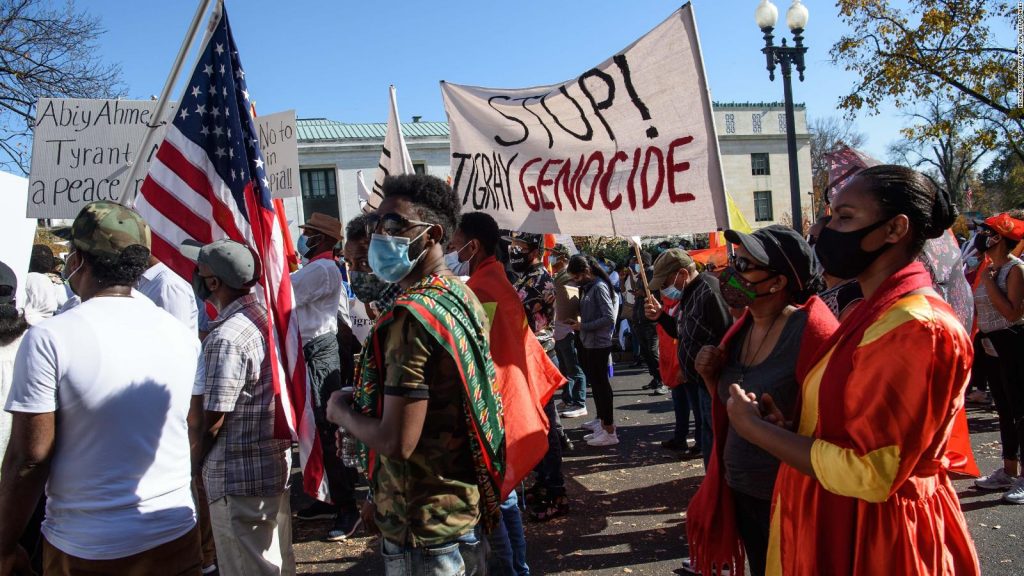
The USA policy on dealing with Ethiopia Tigray conflict and humanitarian crisis is at least partly based upon the testimony of hundreds of foreign passport holders who were trapped in Tigray. Meanwhile the Ethiopian Human Rights Commission has ignored them.
At the time of the onset of the Ethiopia Tigray conflict in November 2020 there were thousands of foreigners both ex-patriot and diaspora present in Ethiopia. NGO employees, religious missionaries, foreign development/business, and academics from China, India, Europe, USA, Australia, Japan, South Korea, and others. Following the capture of Mekelle many were gathered there. They numbered in the hundreds at least.
At that time I had been Professor and Chief of Neurosurgery at Mekelle University in Tigray. Leaders of the University and our Ayder Comprehensive Specialized Hospital met with representatives of the Red Cross. There was no active effort by the occupying Ethiopian or Eritrean troops to address the issue of trapped foreigners. The Chinese were given special treatment so that they organized their own affairs and were allowed to take armed buses to Samara in the Afar Region. Meanwhile all others were cut off from banking, communication including to their embassies, or traveling. I became the coordinator working with the Red Cross to try and evacuate and inform American diaspora as well as expatriates. We had meetings together with Indian, European, Australian, South Korean, Japanese and other foreign passport holders. Holding these meeting was difficult and frankly discreet because the occupying forces did not want us to talk to them.
Being a former soldier schooled in the Geneva Convention to which Ethiopia is a signatory I wanted to inform the Red Cross of all combatants who were treated at Ayder Comprehensive Specialized Hospital so that their families would be notified. Instead I was threatened with arrest for aiding terrorists.
Diaspora women especially young women were constantly harassed by Ethiopian and Eritrean soldiers. Most of the diaspora were visiting relatives in Tigray. The soldiers treated them like they were spies or had fake US passports. Sometimes passports were confiscated and personal belongings seized. Any cash in their wallets was often taken.
Initially some communication was tried via the World Food Program and the Red Cross but quickly the occupying forces became convinced that NGOs were somehow cooperating with the Tigray military. Some initial attempts to send buses of foreign passport holders to Samara in Afar Region were tried with intermittent success however the Ethiopian authorities mostly blocked diaspora from leaving for some time.
Many Tigray diaspora when they finally made it Addis Ababa were “detained” or even arrested. When they tried to check in for flights to leave at the airport they were blocked or apprehended. The American and other embassies spent considerable time getting them free. Some of them at the airport were actually other ethnic groups who had visited other regions but because their name “sounded” like a Tigrayan they were arrested.
The right to visit the World Food Program, Catholic Charities, or the Red Cross was soon blocked by the occupying forces. They would physically harass the women, often steal cash present on the person, in a least one case stole a motor vehicle, and did arrest some foreigners who would wait in line at the World Food Program office just to hand in a message requesting evacuation.
These diaspora and foreigner workers were important witnesses to the human rights violations and atrocities committed in Tigray. I know the United States State Department, Australian, and European equivalents interviewed hundreds collecting first hand testimony. Additionally many of us have responded to inquiry by the investigating bodies of the African Union and the United Nations. Yet to my knowledge the so called Ethiopian Human Rights Commission has avoided collecting any information from these important witnesses. Non Oromo or Non Tigray Ethiopian complainers of American policy now in place should understand that American policy is based upon a very good knowledge of what was happening and is happening in Tigray.
I remain very thankful to the Indian government for facilitating my own evacuation.

